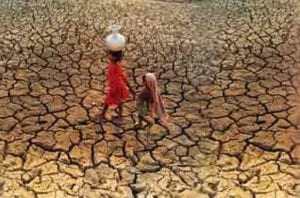South Africa is over-exploiting its freshwater resources and water scarcity may shortly emerge as one of the most significant constraints on South Africa’s human-development prospects.
This is according to African Futures Paper 11 titled “Parched prospects, the emerging water crisis in South Africa”. The paper models and forecasts water demand and supply until 2035, the period covered by the National Water Resource Strategy 2013 (NWRS2), using the International Futures forecasting system. Closing the demand supply gap Not only is South Africa a dry country, but it also uses more water per capita than most countries. The world average water consumption is 173 litres per person per day. The average per capita water consumption in South Africa is 235 litres. According to the paper, the gap between demand and supply continues to increase and will not be closed by the solutions proposed by the Department of Water and Sanitation without additional, aggressive measures. Losing water though leaks In his 2010 state-of-the-nation address President Jacob Zuma stated, “We are not a water-rich country. Yet we still lose a lot of water through leaking pipes and inadequate infrastructure. We will be putting in place measures to reduce our water loss by half by 2014.” However, the paper states that little immediate progress has been made to fulfil that commitment.“A 2012 study conducted by the Water Research Commission found that 36.8% of municipal water is lost through physical leakages or commercial losses. This despite the fact that in 2011 the South African Local Government Association and the Water Research Commission re-established the benchmarking of water services in South Africa through the launch of the national Municipal Benchmarking Initiative for Water Services, which was aimed at improving efficiencies in water management,” states the paper.
Over-exploiting water “The policies set out in the NWRS2 are clearly not enough to address the water constraints facing South Africa. Even if policies that would close the demand-supply gap by 2035 are put in place now, South Africa will still be over-exploiting water for the next 20 years — even on South Africa’s current growth path, which is significantly lower than that presented in the ‘Mandela Magic’ scenario,” says the paper. This over-exploitation increases the vulnerability of the water system to shocks like drought and will be aggravated by the impact of climate change. Engineering alone not enough “Increases in water supply cannot match the expected increase in demand without additional and far-reaching interventions. The water crisis cannot be solved through engineering alone — demand management in terms of both efficiency and allocation will have to play a large part in the efforts to close the water demand-supply gap in South Africa.” “Clearly, any attempt to reconcile this gap must include policies to reduce demand, increase supply, improve efficiency and create the necessary incentives for the transition to a recycling economy, in which water of different quality and price is used for different purposes.”






